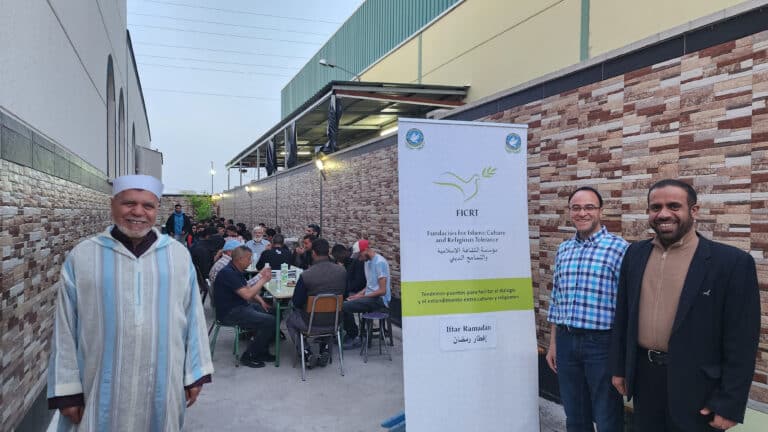The first Cordoba Forum “From Islam-Christian Dialogue to the Abrahamic Family”, organised by the FIRCT Foundation at Casa Árabe, continued its afternoon session with a new panel that highlighted interreligious dialogue and coexistence in various countries, including Argentina, Morocco, and Indonesia.
The session, moderated by Pilar Garrido, professor of Arab and Islamic Studies at the University of Murcia, began with Dr. Susana Brauner, professor at Argentina’s National University of Tres de Febrero, who spoke about interreligious dialogue as a model of coexistence in Argentina. The professor took a historical tour from the late nineteenth century to the present, highlighting the decline of Catholics between 1960, with 90%, and 2014; the high visibility of Jews in different social spheres in the 1960s; and Muslims, from the 1980s and 1990s.
Concerning the origins of Jewish-Christian dialogues, he stated that they began before the Second Vatican Council and were strengthened in the 1960s, with the most progressive people of both confessions acting as actors: priests, pastors, and rabbis who opposed the dictatorship’s violation of rights. He also stated that the religious dialogues were formalised following the 1992 and 1994 attacks.
Dr. Tijani Boulaouali, professor at the Catholic University of Leuven (Belgium), also took part and defended the figure of Abraham “as a meeting place for followers of monotheistic religions” in both war and peace. Abraham, according to this professor, will be present throughout history, even in digital times when many people reject religion. “Abraham appears as a symbol of sacrifice, unity, and brotherhood”, said the professor, who sees the meeting’s theme, Abrahamic brotherhood, as a symbol of rapprochement in a pluralistic society.
He also defended pluralism as a chance rather than a threat. He also mentioned Morocco, where Christians, Muslims, and Jews coexist, and the Arab Emirates, which has a Ministry of Tolerance.
Dr. Muhammad Naijb, Indonesian Ambassador to Spain, who delivered a lecture on “The Abrahamic Family in East Asia”, emphasised the significance of this forum in defending peace, regardless of religion. The ambassador, in explaining the main features of his country, emphasised the unity of diversity as one of its characteristics, “which is the essence of its identity”.
The ambassador explained the differences between secular and religious nationalism in Indonesia, but emphasised the existing tolerance as “respect for others and effort to understand the other”. The day concluded with a guided tour of various monuments in Cordoba related to the three religions, including the Mosque, Cathedral, and Synagogue, by the speakers and guests.







